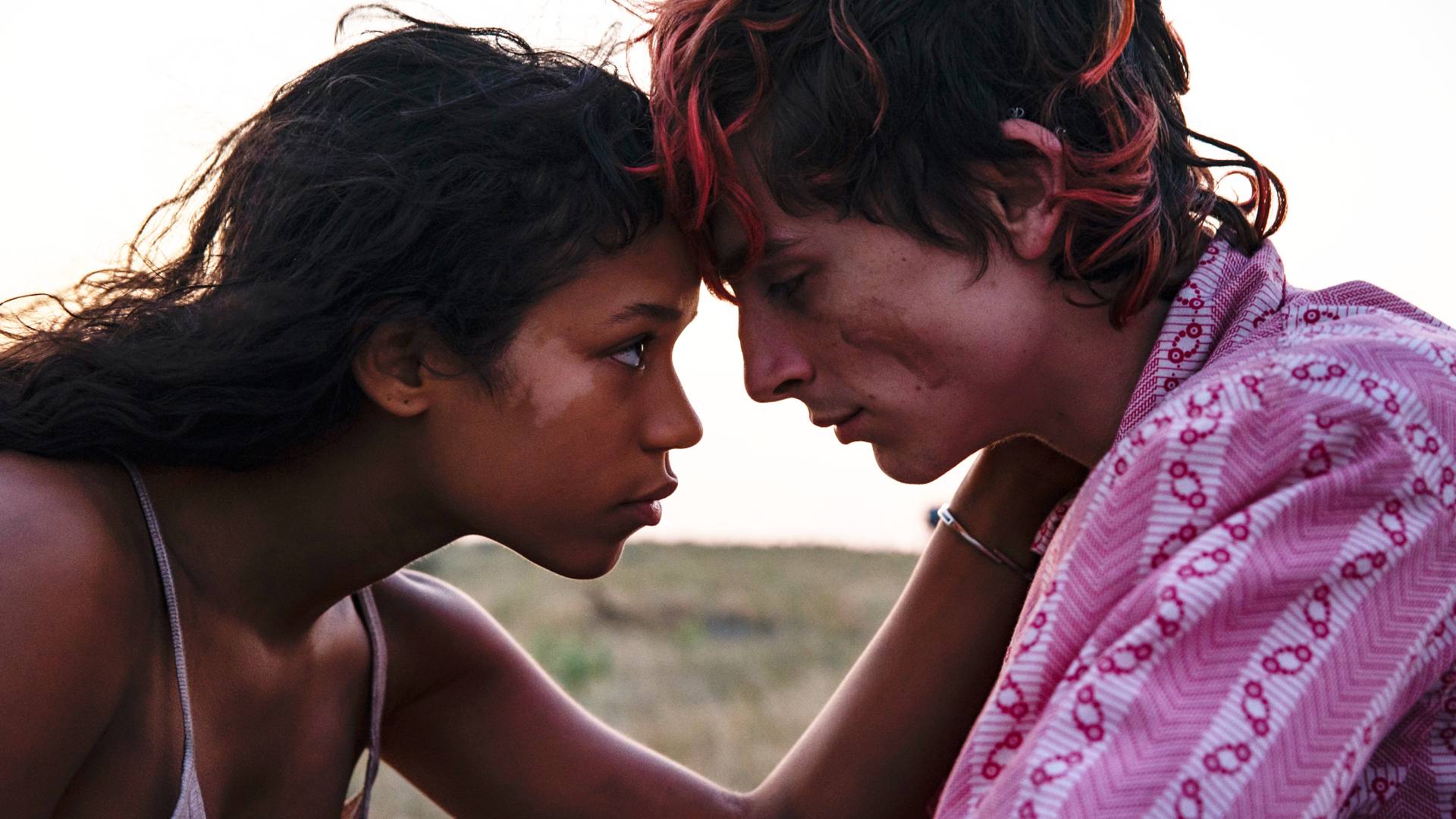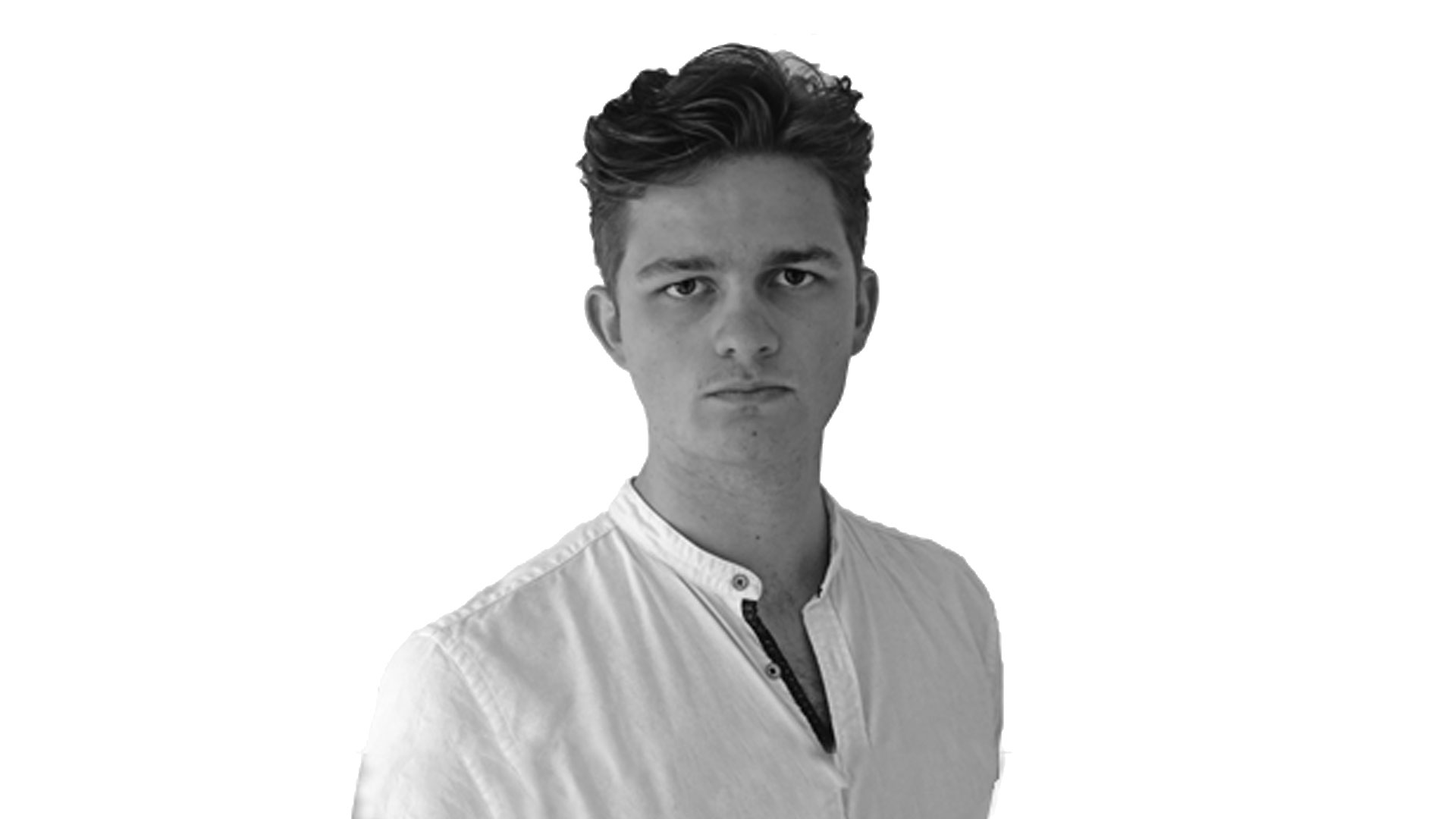Luca Guadagnino talks Bones and All, Timothée Chalamet, and Call Me By Your Name copycats
Exclusive: The director tells Total Film that "it's better to have Spider-Verse than the [same] queer indie movie" repeated

Luca Guadagnino has a few things to say. The filmmaker, best known for his Oscar-nominated drama Call Me By Your Name, has long been one of the industry's most outspoken voices – a fierce director with a knack for creating challenging movies about outsiders. Now, his latest project, Bones and All, is at the center of much debate following its rapturous reception at film festivals over the summer.
Taylor Russell, a breakout sensation following her role in the critically acclaimed drama Waves, leads the cast as a cannibal on the run. She soon discovers that she's not the only person afflicted by this curse, and meets another cannibal played by Timothée Chalamet. Together, they road trip through America to find out more about their condition, and along the way must evade both the law and other threats. At its center, perhaps unsurprisingly considering Guadagnino's filmography, Bones and All is a love story – though, at times, it's hard to overlook the sheer fact that these lovers are seen chowing down on other human beings.
"I have never seen this movie through the lens of cannibalism, per se," Guadagnino tells Total Film. He's a fidgety presence, becoming particularly animated when we touch on topics of interest such as the ongoing debate around the movie. "A movie is great whenever you have the opportunity to tell an endearing story and to follow characters that you can fall in love with, no matter what they are, what they do, and who they want."
He likens the cannibal aspect of Bones and All to the works of George A. Romero, whose famous zombie movies examined the impact of the rising undead through a realist's lens. They acted as vehicles to explore various real-world issues; for instance, Dawn of the Dead – set primarily in a shopping center – is a parable about the rise of consumerism.
"Romero never brought the fantastic into his world," Guadagnino says. "He has a very matter-of-fact, practical outlook, given the premise that the dead are coming back to life and they're seeking fresh human flesh. He has not created rules other than dealing with how it would happen in reality, and that's why he's one of the greatest directors, and that's why his legacy has been trashed by what happened afterward. Because the fantastic, the surreal, the postmodernism of that became devoured. The political and cinematic qualities of the original movies stand the test of time, whereas the offspring of George Romero do not."
For Guadagnino, Bones and All – based on the book by Camille DeAngelis – is a fable, and in every good fable, he says, there's the "triumph of love" over everything else. "There are elements of the uncanny, and elements and challenges that really are threatening our heroes, that our heroes have to face in order to overcome them," he says. "And in every good fable, violence and cruelty is a big part of it. In Red Riding Hood, the wolf eats people. There are many murders in fables, yet, we as children want to listen more and more, because children are very wise.
"Through the lens of the uncanny, we're being told to find a way to overcome the limits of ourselves. That's why it's important that we read our fables to our children. In this case, what these heroes have to overcome are challenges that are outside, out there in the world, but also inside of them. And so it makes it even more, in my opinion, fascinating."
Bringing all the latest movie news, features, and reviews to your inbox
Bones and All is not a children's story, though it does have Guadagnino thinking about the stories we tell our children. Total Film suggests gory elements are often removed from modern retellings of these fables, and the filmmaker – growing more restless in his chair – agrees. He says that adults often think fables need to teach children to become better adults.
"But now we live in a world of corporate domination where, actually, the adults are infantilized and they're being brought backward," he says. "This idea of being a child has nothing to do with the wonderment and the revolutionary aspect of being a child, but it has to do with the idea that a child is someone who we can puppet."
Guadagnino has spoken before about Hollywood being "toothless" in the movies it chooses to tell, but he wants to put the record straight. "I believe that Hollywood is still the dream factory that creates prototypes and allows prototypes to exist as a popular medium," he says, the "prototypes" he refers to being original ideas in storytelling. "That doesn't mean that the actual industry works on a level of repetition, and industrialization. Because in order to get this prototype out, they need to profit from the chain. But I hope to be able to work in Hollywood, from the standpoint of the prototype creation, not the chain creation."
Total Film highlights the idea of "repetitions" within franchises – that plots and characters are often seen as being recycled without evolution, yet those are the stories that often dominate the box office. "It has always been like that," Guadagnino says. "When I was a teenager, there were so many repetitions."

He points to the second Back to the Future movie and a joke in there about sequels – when Marty McFly sees a poster for Jaws 19. "That's Robert Zemeckis paying homage to his friend, Steven Spielberg," Guadagnino says, "but at the same time, it's making a little satire about the tendency of this chain production machine that is Hollywood – that could be Hollywood. It's always been like that. It's nothing new."
"You have two different energies happening at the same time," Guadagnino continues. "One is the prototype machine, the labs where people make prototypes, that become beautiful, beautiful mementos that pave the way. And then there is the repetition. And you can see repetition and mechanism also in what they call art cinema. It's become a genre in itself.
"Is it better to see, again and again and again, the same queer comedy about hipsters in this bromance? Or is it better to see a big unapologetic fantasy movie from Hollywood, that, in a way, is enlightening you? Is it better that, or is it better Spider-verse? I think it's better to have Spider-verse than the queer indie movie."
It's a unique perspective from the man who brought the beloved story of Elio and Oliver to the screen. And indeed, in the wake of Call Me By Your Name, the arthouse scene exploded with LGBTQ+ stories, though many won critical acclaim and positively added to the genre. While Bones and All is not a story about a same-sex relationship, it features some similarities with Guadagnino's past work, and Total Film starts to discuss trends in his films.
"At the beginning, people thought that I was a rich man making movies about rich people, which is not true, of course," he interjects, seemingly referring to I Am Love and A Bigger Splash, both starring Tilda Swinton. Instead, Total Film suggests that his recent films center more on young outsiders – just consider Call Me By Your Name, his coming-of-age TV series We Are Who We Are, Bones and All, and his upcoming project Challengers, which stars Zendaya, Josh O'Connor, and Mike Faist.
"Challengers is not exactly about that," he says. "We follow them for 15 years. And I don't know if they will be called outsiders, but we will see." He does agree, however, that there's a certain type of character he gravitates towards. "I like mavericks, I like people that are not parochial," he says. "I like people that are eager to get into a right of transformation. But my goal is to be able to grasp characters in stories as wide as possible. And to find a way not to repeat myself."

With Bones and All, Guadagnino avoids repetition by inverting his own cinematic history. Michael Stuhlbarg, who played the understanding father in Call Me By Your Name, here portrays a cretinous and creepy cannibal who delivers a terrifying monologue to Chalamet's character. Having Stuhlbarg being his own antithesis, though, was accidental.
"It happened and then I realized what I was doing," Guadagnino says. "He's the perverted father in this movie, where he was the benign transmission of knowledge father in that movie. Above everything, Michael's a wonderful friend, and one of the greatest actors. So it's a privilege to direct him."
It was also "organic" having Chalamet return to his acting troupe for Bones and All. When Call Me By Your Name was released, critics heralded Guadagnino for discovering the young new talent. Coming to Bones and All, Chalamet is a superstar, having led blockbusters like Dune, and he acts as a producer on the new film.
"When I gave him the script, he had such beautiful ideas about his character, and in general, the world of this movie, and the conversation became beautiful and thick," Guadagnino says. "He was really invested in making this movie happen and to be part of the way in which the movie should be done – simple, low-key. He was great in following the way in which the movie was put together and then how to market it.
"He's such a bright, young man who has not been in any way changed for the worst by his stupendous rise to fame and this amazing career that he's having. He is using the opportunity, he made very interesting choices and to work with very great directors and to do very unforgettable characters. You can't grasp how skillful and tasteful and sophisticated he is, and ambitious in a good way."
We return to talking about fables. What does Guadagnino hope people take away from Bones and All? He takes a second to think. "To love monsters, and to love the monsters in them," he says, sitting still. "It's not about putting everything in order. Fables are not about restoring order. It is about transformation."
Bones and All is in cinemas now. For more, check out the most exciting upcoming movies heading your way soon.

Jack Shepherd is the former Senior Entertainment Editor of GamesRadar. Jack used to work at The Independent as a general culture writer before specializing in TV and film for the likes of GR+, Total Film, SFX, and others. You can now find Jack working as a freelance journalist and editor.


